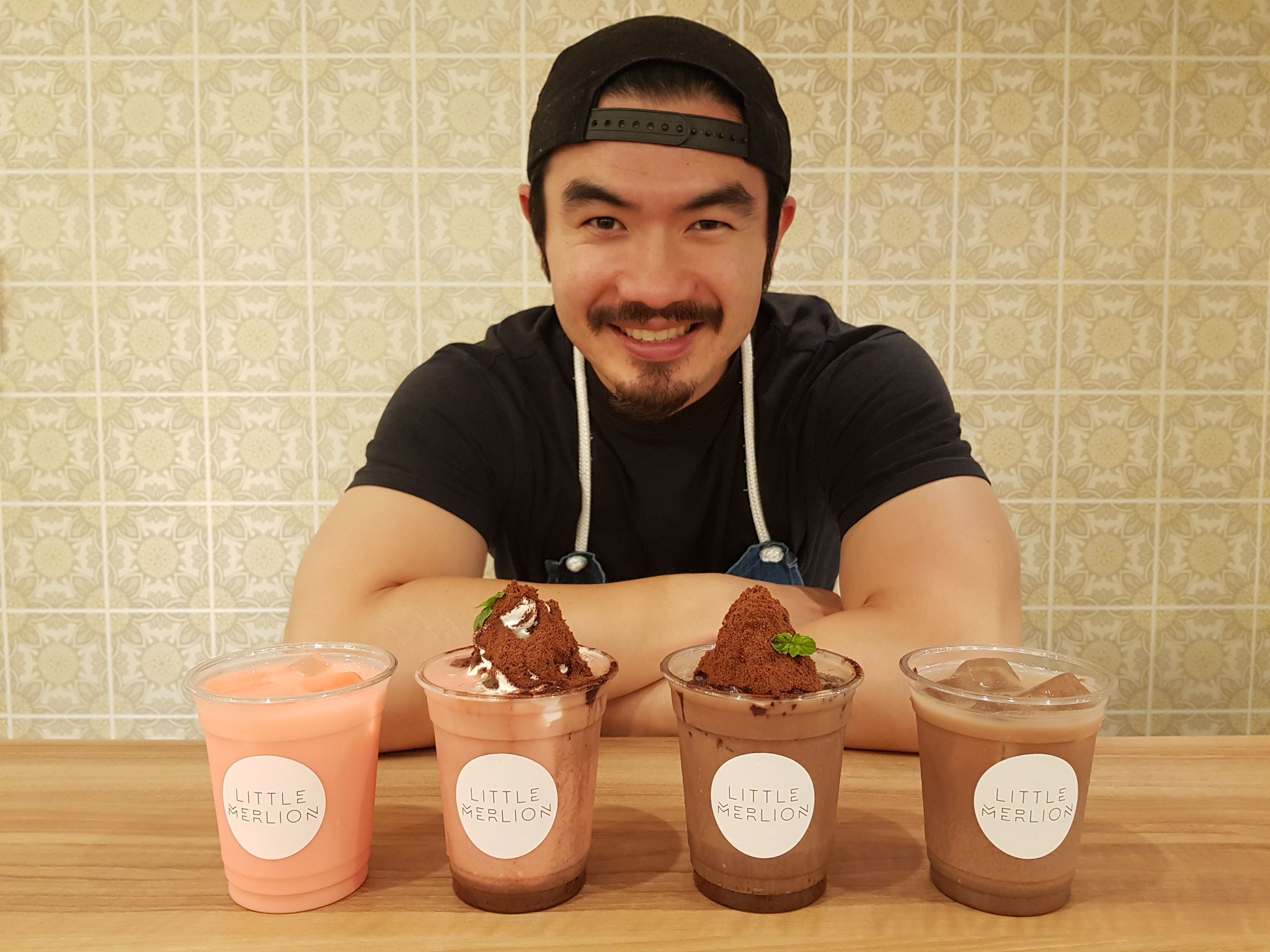Mark Namiki, a Japanese/Malaysian raised in Singapore, came to Japan six years ago with his Singaporean wife, Melissa Yap. While they enjoy raising their children in Japan, they are determined to take this opportunity to introduce authentic Singaporean food to Japan.
The beginning of their love for Japan
-Why did you come to Japan?
I came to Japan initially on a one-year contract with the intention of experiencing life in the country alongside my wife. During the planning process, we discovered that my wife was pregnant. Despite this, we made the decision to proceed with our plans and give birth in Japan. The excellent treatment and quality of the hospital experience made us realize that Japan is an ideal place to raise children due to its livability and friendliness. As a result, we decided to extend our stay, and I have now been living in Japan for six years, thoroughly enjoying my life here with my wife and children.
-What do you like the most about Japan?
What I like the most about Japan are its distinct four seasons. I appreciate the variety of food available throughout the year, as well as the diverse weather patterns that accompany each season. The ever-changing scenery is remarkably beautiful and provides a sense of wonder.
Additionally, Japan offers a high standard of living. The combination of reasonable prices and high-quality products and services contributes to a comfortable lifestyle. The convenience of life in Japan is also remarkable. I can easily ride back home to have lunch, and buying groceries is a breeze with plenty of choices. Of course, something in Japan is a painful point for many foreigners, as certain aspects change slowly, such as the usage of inkan (personal seals), fax machines, and bank transfers.
-Do you feel comfortable living in Japan with your family?
Yes. Another reason I love Japan is because of Japanese people. I feel that we are lucky to meet many kind people. When I first came to Japan and my wife was 7 months pregnant, we didn’t know Japanese. But there was a 75-year-old lady who is so helpful in bringing us to the maternity clinic and doing the translation. When my daughter was born, she was the first person who came and helped us to do the paperwork in the city hall or in the kindergarten. She’s like my Japanese mother.
For me, Japan is super family-friendly. In almost all shopping malls, there are baby changing rooms or baby changing tables in the toilets, and strollers for kids in the supermarket. In the park or on the street, when they see my daughter, there are many people who say “Oh, so cute!”. The government also supports us raising children. My wife went to a class to learn how to be a first-time mother, how to change diapers, what to expect, and how to feed a newborn child.
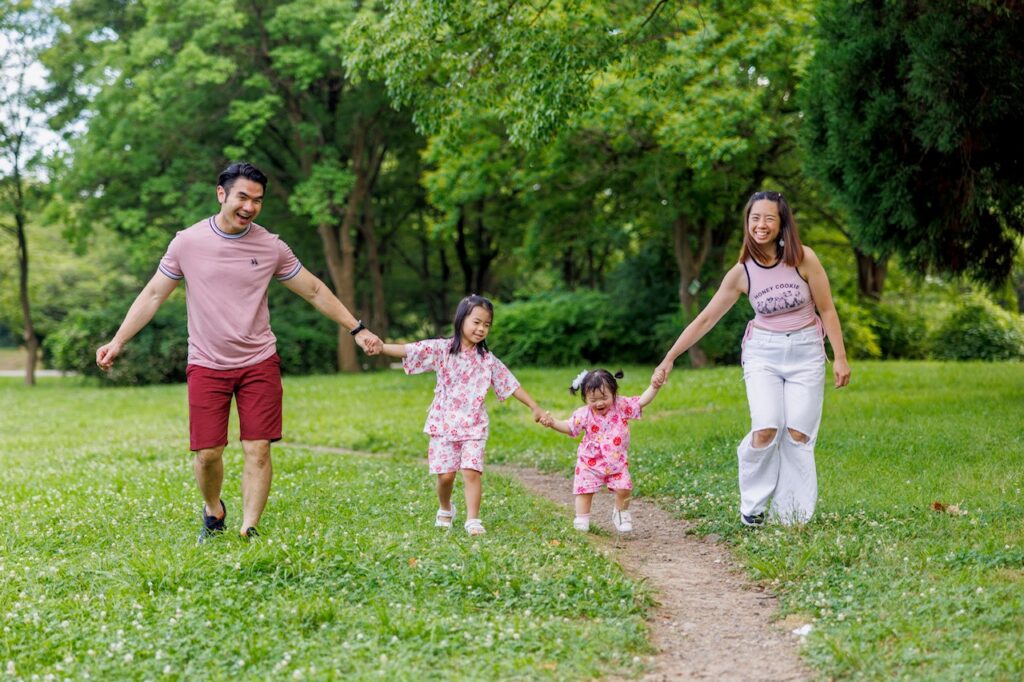
Cultural Diversity and Differences
-You are a mix of Japanese and Malaysian raised in Singapore. You must have experienced many different cultures.
It’s a complex problem that almost all mix Japanese people may face as it’s difficult to say where you are from. Some people might say “You’re fake Japanese as you can’t speak Japanese”. In Singapore, I can’t say I am not Singaporean although I speak Singlish. Also, I don’t speak Japanese fluently, so for local Japanese, I will be considered “gaijin”. I came here with the feeling that I was a foreigner.
I appreciate the way we say “double nationality” instead of “half Japanese”. I’m very proud of my international family. I have a Japanese passport, my wife holds a Singapore passport, my mom has a Malaysian one, my brother has an Australian one, and my brother’s wife has a Korean passport.
-What are some cultural differences between Singapore and Japan?
The culture is so different, especially the working culture. The biggest cultural difference is being straightforward as it is not common in Japan. When I started working in a Japanese workplace, I had the opportunity to learn how to read the room and harmonize. You are not told to do anything but you have to observe what others are doing and try to do the same thing. That’s what the Japanese people call “kuki wo yomu”, which means “read the air”.
In addition, I used to teach English to many elderly people who have never traveled abroad and there I experienced many differences. During our sessions, I encourage them to share how they spend their weekends, and sometimes I playfully pose tricky questions like, “When was the last time you said ‘I love you’ to your husband?” Their responses can be surprising, as many of them admit they have never done so. I also like to tease them about the secrets to a lasting marriage. I’ll ask, “On your husband or wife’s birthday, do you give them a hug and a kiss?” Their answers are always intriguing, with most saying, “Oh no, we don’t do that”. Knowing that Japanese culture tends to avoid overtly expressing love or emotions verbally, I suggest to them, “Why don’t you go home today and say, ‘Thank you for everything you’ve done for me. I truly appreciate it.’ Small gestures like these can make a big difference, even without using the words ‘I love you.”
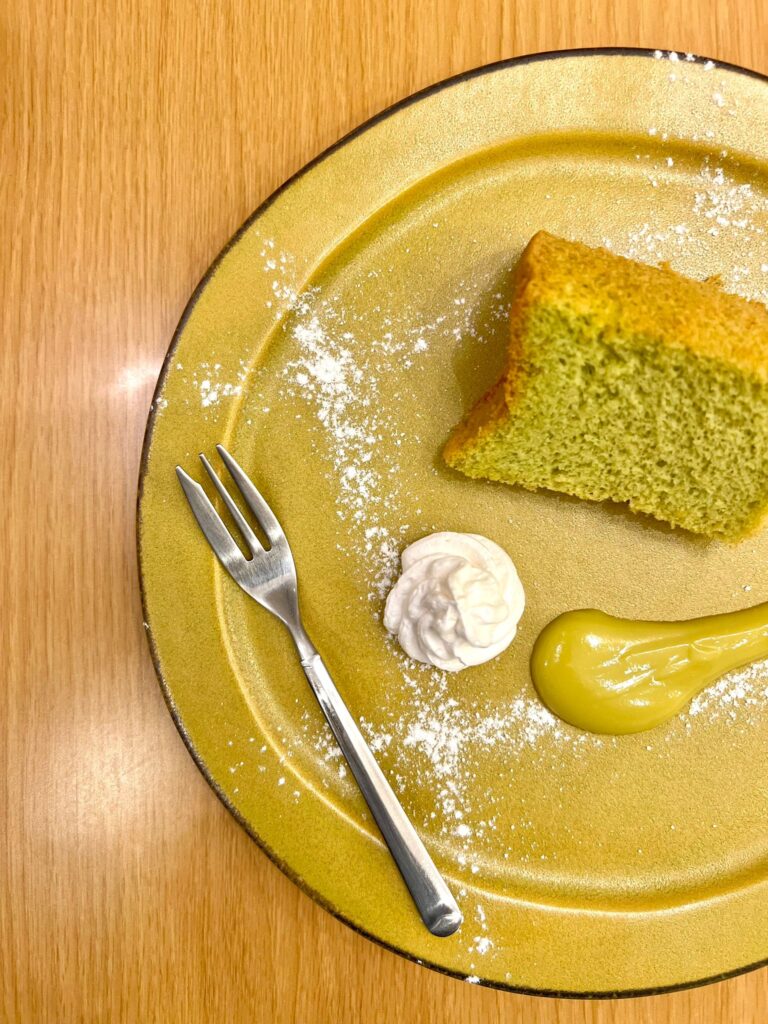
A Singaporean community in Adachi, Tokyo
-Can you tell us your best experience in building the relationship between Japan and Singapore?
I love connecting people, so I opened a cafe that became a popular place for people to hang out, chat, and share contact information through LINE, Instagram, and other platforms, forging new friendships. For instance, there is a Singaporean woman who lives in Shizuoka. She is studying Wagashi (traditional Japanese confection) and currently works for a Wagashi shop. During one of her business trips to Tokyo, she visited our cafe to enjoy some Singaporean food. Through interactions with other customers, she made friends and now brings along delicious “wagashi” to share every time she came to our restaurant.
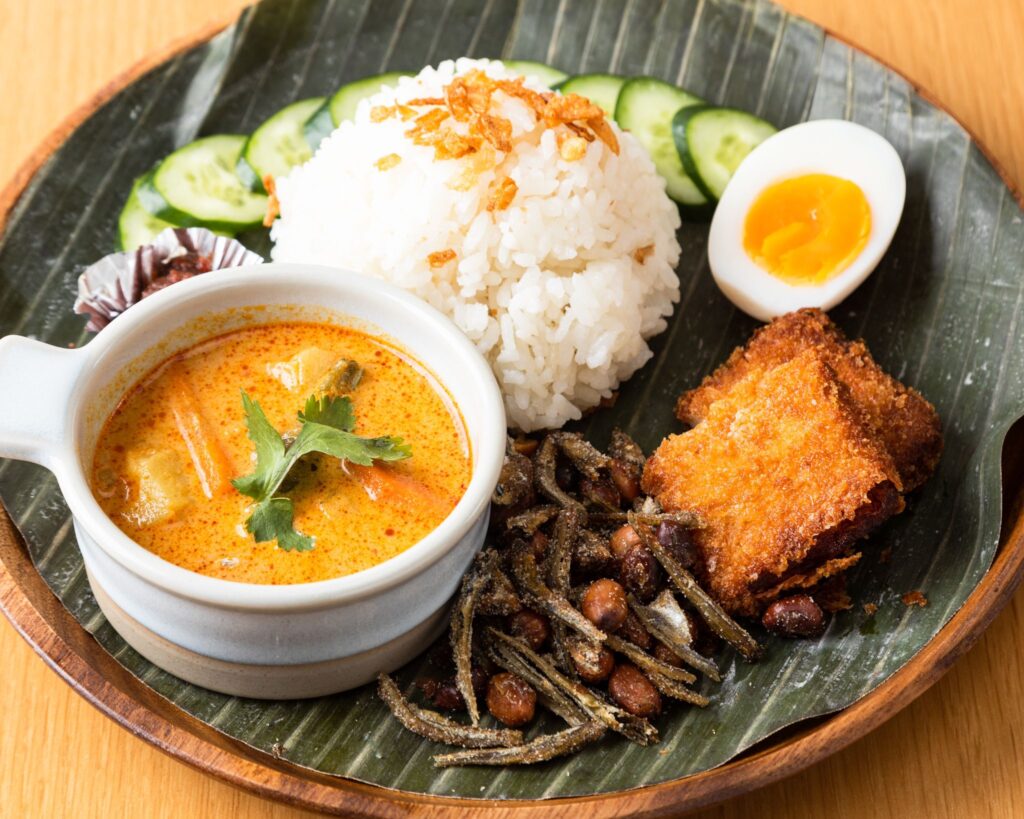
– Were there any difficulties you faced?
I opened the cafe because of the COVID-19 pandemic when everything was locked down. My aim was to bring back a sense of regular life. I live in the Adachi District, and I noticed there were very few Singaporean food restaurants in Tokyo. I enjoy cooking Laksa, and when I served it to my friends, they loved it. So, we thought why not open a cafe?
The F&B industry was severely impacted by Covid, and we didn’t have many customers at first. To promote the cafe, we organized charity events and parties, including ones supported by the Singaporean embassy and student organizations affiliated with ASEAN agencies. For example, we held a crowdfunding project to reach out to more people and introduce our restaurant.
Although some people from distant areas like Yokohama, Kawasaki, Kawaguchi, and even Ibaraki and Osaka traveled far to visit our cafe in Adachi, we struggled to attract local customers. This has been a challenge for us.
We closed the cafe but still run an online shop and do catering to offer authentic Singaporean food in Japan. Despite the difficulties, we remain determined to introduce and share our love for Singaporean food in Adachi. We believe that with continued efforts, word-of-mouth, and positive reviews, more local people will come to appreciate and enjoy our offerings. We are committed to staying patient and dedicated to our passion for showcasing Singaporean cuisine in our community.
Last but not least, tell us about Singaporean food!
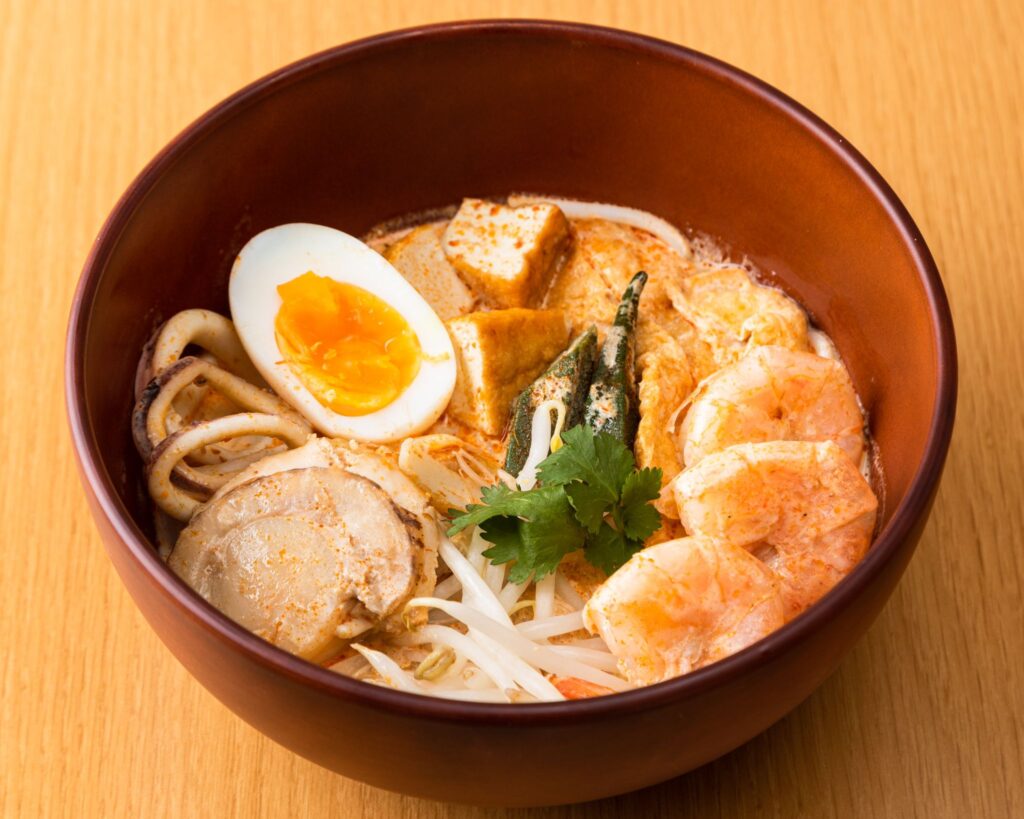
I would say it is unique because it has so many flavors. Singapore is a mesh of cultures and that is reflected in our food that makes it special. So even Laksa, there are so many versions of it but the one we like is the Nyonya version which has a rich creamy broth.
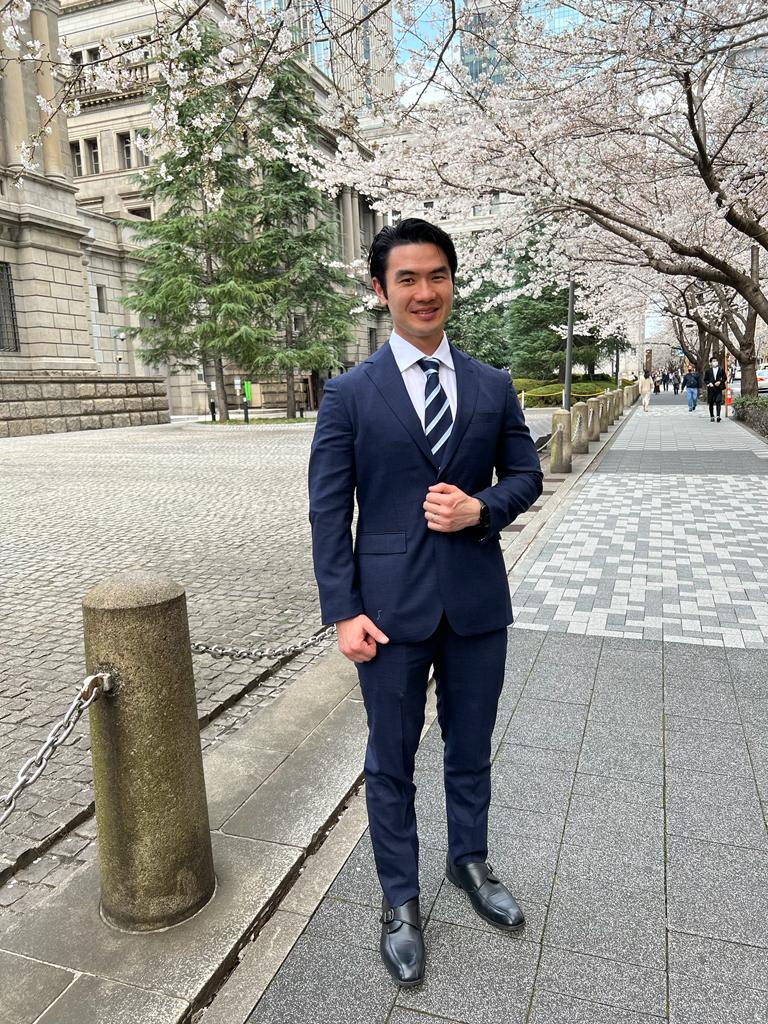
Mark Namiki
A Japanese/ Malaysian who grew up in Singapore. Owner of Little Merlion Cafe (currently online shop/food truck only) in Adachi.
Instagram: https://www.instagram.com/littlemerlion_tokyo/
Interview and text: Mimi Le
Photo courtesy: Mark Namiki


